Time is the one thing we will always have less of. That’s why there are so many books on time management, to-do lists, productivity, changing habits, and project planning.
Some of those books are little more than self-help claptrap. Others contain enough useful points to make them worth flipping through, but are far from life changing. However, the best time management books will show you a new way of thinking and even kick your ass into gear.
To figure out which approach can help you learn how to stop procrastinating, get organized, and do what you need to do, start by checking out this list of books on time management. The books are organized into two sections: the first for people who haven’t thought much about time management, and the second for those looking for advanced ideas and systems.
Time management for beginners
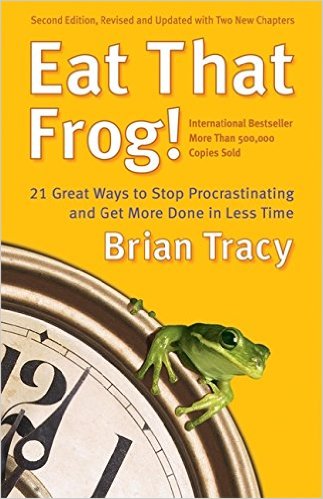 Eat That Frog! 21 Great Ways to Stop Procrastinating and Get More Done in Less Time
Eat That Frog! 21 Great Ways to Stop Procrastinating and Get More Done in Less Time
Brian Tracy
This much-loved book includes 21 methods for conquering procrastination and accomplishing more. The new edition includes information on how to keep technology from dominating your time. It’s an easy read that makes time management seem possible, even for beginners.
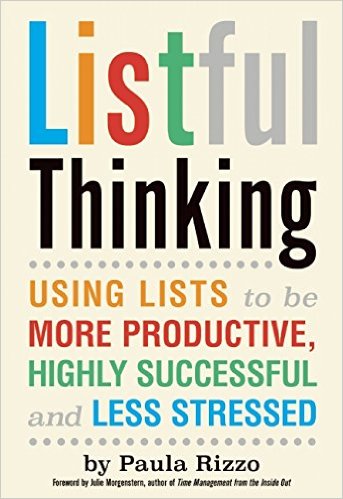 Listful Thinking: Using Lists to Be More Productive, Successful and Less Stressed
Listful Thinking: Using Lists to Be More Productive, Successful and Less Stressed
Paula Rizzo
If you’re just getting starting with personal list making and time management, this book is a nice place to begin. Rizzo eases you in to list making with some basic tips and advice. Check out Rizzo’s blog, The List Producer, which includes many of the same tips.
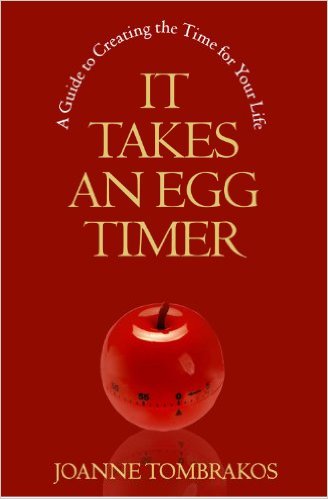 It Takes An Egg Timer, A Guide To Creating The Time For Your Life
It Takes An Egg Timer, A Guide To Creating The Time For Your Life
Joanne Tombrakos
This book by Joanne Tombrakos offers uncomplicated solutions that start with a very simple tool, the egg timer. It is written for anyone who dreams about making a change in their life, big or small, and are convinced that what is stopping them is not enough time. Tombrakos’ goal is for you to no longer ask yourself whether you have the time to do what you want, but what you will do with it now that you’ve found it.
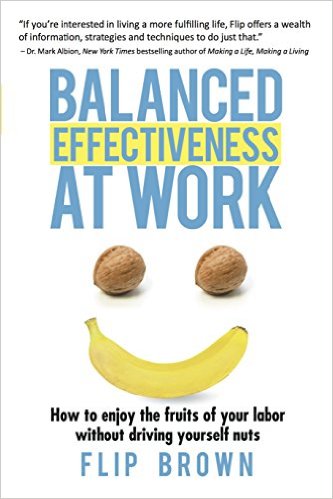 Balanced Effectiveness at Work: How to Enjoy the Fruits of Your Labor without Driving Yourself Nuts
Balanced Effectiveness at Work: How to Enjoy the Fruits of Your Labor without Driving Yourself Nuts
Flip Brown
Brown offers a “resiliency manual” for anyone who works for a living. The book addresses the chronic dissatisfaction that comes from being in a crazy-paced, priority-confusing, soul-sapping workplace. Within each chapter there are conceptual definitions, sample scenarios, frank assessments, “Flip’s Tips,” action plans for real traction, and positive reinforcement. Brown aims for a light-hearted but in-depth look at twenty-four wide-ranging topics with real options, helpful resources, and renewed optimism.
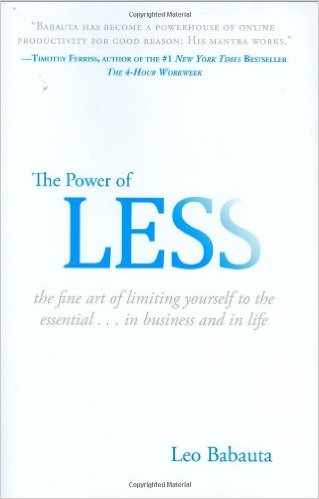 The Power of Less: The Fine Art of Limiting Yourself to the Essential…in Business and in Life
The Power of Less: The Fine Art of Limiting Yourself to the Essential…in Business and in Life
Leo Babauta
This book, written by the blogger who runs Zen Habits, is a call for simplicity. The Power of Less demonstrates how to streamline your life by identifying the essential and eliminating the unnecessary freeing you from everyday clutter and allowing you to focus on accomplishing the goals that can change your life for the better.
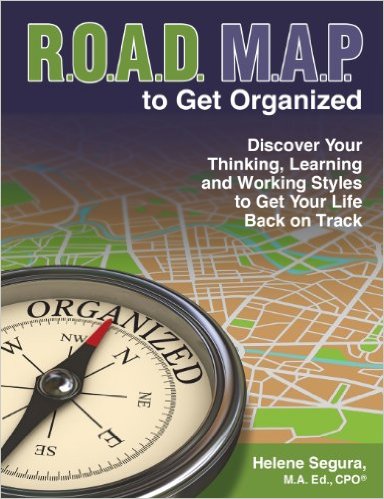 ROAD MAP to Get Organized: Discover Your Thinking, Learning and Working Styles to Get Your Life Back on Track
ROAD MAP to Get Organized: Discover Your Thinking, Learning and Working Styles to Get Your Life Back on Track
Helene Segura
You know you want to be more organized. You know what the end result looks like. There’s so much to learn and do, but where do you start? Segura’s created this book to be a tour of an organized person’s brain. It addresses the mental and emotional prep work required for success. Segura guides the reader through the same thought processes that organized people and successful decision-makers follow. Learn how to develop a plan to get and stay organized. Segura also blogs about time management.
Advanced time management advice
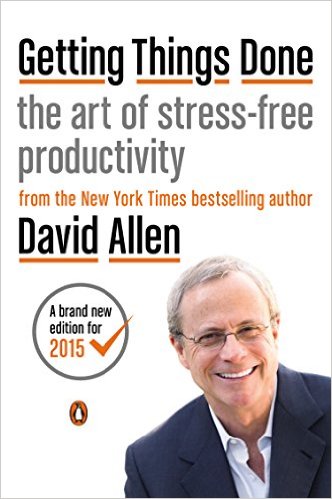 Getting Things Done: The Art of Stress-Free Productivity
Getting Things Done: The Art of Stress-Free Productivity
David Allen
One of the best known productivity books, David Allen’s Getting Things Done has been updated in 2015 as a new edition. “GTD” is now shorthand for an entire way of approaching professional and personal tasks, and has spawned an entire culture organizational tools, seminars, and offshoots. Allen has tweaked his classic text with perspectives on the new workplace. The Getting Things Done website is a gateway to the massive GTD empire.
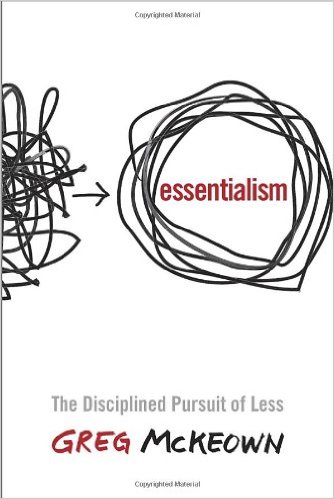 Essentialism: The Disciplined Pursuit of Less
Essentialism: The Disciplined Pursuit of Less
Greg McKeown
Author McKeown’s book isn’t about getting more done in less time. It’s about getting only the right things done. The author doesn’t promise a time management strategy or a productivity technique. Instead, he presents a systematic discipline for discerning what is absolutely essential, then eliminating everything that is not, so we can make the highest possible contribution towards the things that really matter.
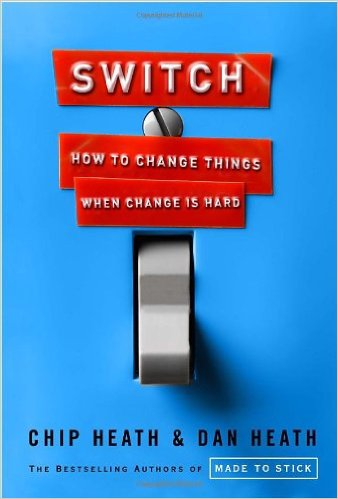 Switch: How to Change Things When Change Is Hard
Switch: How to Change Things When Change Is Hard
Chip Heath and Dan Heath
Rather than focusing on time management, this book deals with how we can overcome psychological barriers to create lasting change. Psychologists have discovered that our minds are ruled by two different systems—the rational mind and the emotional mind—that compete for control. This tension can doom a change effort—but if it is overcome, change can come quickly. Switch shows that successful changes follow a pattern, a pattern you can use to make the changes that matter to you, whether your interest is in changing the world or changing how you manage your time.
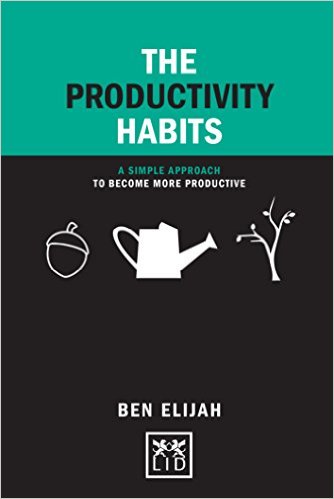 The Productivity Habits: A Simple Framework to Become More Productive
The Productivity Habits: A Simple Framework to Become More Productive
Ben Elijah
This book introduces nine habits that can turn procrastination into productivity and the pain of overburden into the pleasure of achievement. This tool can help turn ideas into action, make the best use of time, make decisions more quickly, manage projects, achieve goals, or just get tasks done. Using tips, hints, diagrams and anecdotes, each habit is explained simply, with a cue, an action, and a reward. Elijah’s blog, Ink and Ben, is ideal for a wonk who wants to work more effectively.
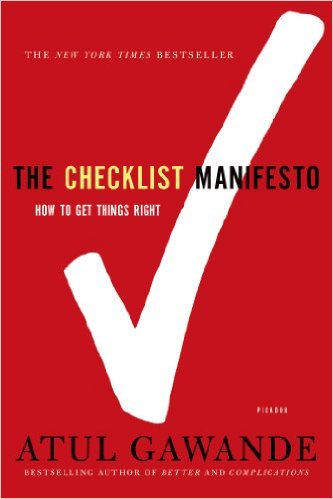 The Checklist Manifesto: How to Get Things Right
The Checklist Manifesto: How to Get Things Right
Atul Gawande
This book is for the to-do list doubters. Before you dive in, start by reading “The Checklist,” Gawande’s 2007 The New Yorker article that started it all. Then, read the book to learn about how simple idea of the checklist reveals about the complexity of our lives and how we can deal with it. Through stories, he reveals what checklists can do, what they can’t, and how they could bring about striking improvements in a variety of fields, from medicine and disaster recovery to all kinds of professions and businesses (and yes, even government agencies).
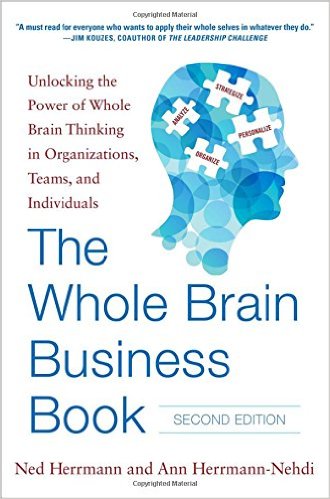 The Whole Brain Business Book: Unlocking the Power of Whole Brain Thinking in Organizations, Teams, and Individuals
The Whole Brain Business Book: Unlocking the Power of Whole Brain Thinking in Organizations, Teams, and Individuals
Ned Herrmann and Ann Herrmann-Nehdi
Sometimes managing our time comes down to learning how to better manage others. Designed for the workplace, this book includes practical tools to assess others’ mindsets and get more intentional about how you use your thinking—and how to best engage the thinking of those around you. Filled with engaging examples, exercises, and action steps, The Whole Brain Business Book shows you how to rethink your work, prepare for the future, realign your goals, and reinvigorate your team—by putting your whole brain to work.
Have you read a book that helped you manage your time better? Share it in the comments.
Lauren Girardin is a marketing and communications consultant, writer, and trainer. Find her on Twitter at @girardinl.




I’ve read several of these, and found them valuable. It would be convenient to have a print article option, so I could print the list to share and check off as I complete.
I know I can copy/paste and I am doing that, it just would be easier to have the print option.
I find that even when websites have the “print page” option, it doesn’t work all that well. Instead, try this easy trick. Most internet browsers will allow you add an extension that can make printing much easier. For example, Clean Print is an extension available on many browsers http://www.formatdynamics.com/bookmarklets/
Thanks! I’ll check some of these books out!
Let me know if you like any in particular, Becky. I’m always interested in hearing what works for different people.
My boss is ADD, and so is my husband. No amount of book reading helps. For chronic time abusers we should consider that they may have an issue that hinders their time management and help them the best we can.
One of the reasons I’ve read so much about time management is because my husband isn’t very good at it. I find that knowing a wide variety of tools and tricks from these books has helped me help him stay more organized.
Book reading isn’t the solution. Putting the ideas into practice is!
Exactly! Most times it will be us, not the time abuser, that puts the ideas into practice in order to help them.